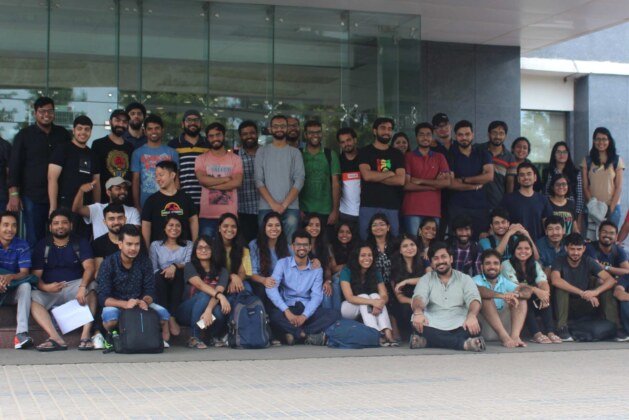Analytics Jobs has brought you another story of a startup that enables Data Science and Artificial Intelligence to accelerate the discovery of drugs. Since the startup works data-driven technology, it takes less time to discover life savings drugs. Analytics Jobs have reached out to the entrepreneurs and had discussed their motive, product, strategy, and operations. Let’s find out what the founders say about their startups.
About the Founders.
The team is a unique combination of subject matter expertise and cutting edge technology. After leaving MIT, Abhishek Jha (Co-founder) became part of the company Agios pharmaceuticals from 2009 to 2014, He was part of the team that successfully brought two drugs into the market.
It was there he realized that huge amounts of data were being created in the pharma industry giving rise to the need to analyze these large sets of data across the whole industry. This primarily led to the origin of Elucidata.
Swetabh Pathak (co-founder),
graduated from IIT Delhi in 2012 in Masters in Mathematics and Computing. He was a founding team member at Avanti learning centers, one of India`s largest education startups. He leads product and technology at Elucidata. With biological and molecular data being generated at such high volumes, cutting edge deep tech is required to handle and analyze the data.
Polly and El-maven are two such products of Elucidata. Swetabh has been responsible for building the tech and data science team from India. Abhishek handles the partnerships with leading research labs of the USA and Europe and global pharma clients like Pfizer. His prior experience in this field has shaped the vision for Elucidata.
What are the concept and the objective behind your business?
Elucidata’s mission is to use data analytics to transform decision-making processes in R&D labs in biotechnology and pharmaceutical companies. We build algorithms and software to process, analyze and visualize large omics datasets across metabolomics, genomics, transcriptomics, and proteomics, among others.
The company’s flagship platform ‘Polly’, a cloud-based, integrated biomedical data platform, helps analyze, visualize, interpret and share vast amounts of datasets from 1000s of patients, 1,000,000s of samples, 21,000 genes, 10,000 small molecules, and 30,000 proteins to generate insights. The startup has raised US$ 1.7 million in seed funding led by Hyperplane Venture Capital and prominent angels last year.
It currently has offices in Delhi and Bangalore, India, as well as Cambridge, Massachusetts and San Francisco. Over the past three years, Elucidata has partnered with over 50 organizations, spanning biopharma, biotechnology, academic and non-profit research organizations. Some of its clients include Pfizer and top universities like MIT, Yale, and Princeton.
What are the solutions you are focusing on?
Elucidata’s cloud platform, Polly is like a Google Map for scientists and researchers looking to decode genes in order to discover medicines and eradicate diseases. An interactive tool, with pathway visualizations and an interpretation dashboard with machine learning capabilities that helps users answer questions in real-time.
The value proposition of Polly: • Integrated biomedical data: Dedicated workflows for different types of data • Full-stack approach: One-stop solution of target ID and validation • Scientist centric design: The current version incorporates feedback from 350+ scientists • Multi-disciplinary team: Diverse expertise across computational biology diseases, enterprise cloud solutions.
How you are using analytics & AI in augmenting your products and services?
Polly helps analyze, visualize and interpret molecular data sets to generate insights. Users can also build their own workflows, collaborate and track their work on a single platform. It is built for biologists, biochemists, and bioinformaticians who struggle daily to interpret large heterogeneous data sets.
What is your biggest challenge?
Challenges:-
- Finding product-market fit (as such product did not exist before)
- Adoption and acceptance in the fraternity and industry
Who are your competitors and how do you differentiate yourself from them?
Our competitors are the open-source software as well as enterprise solutions like DNA Nexus etc. Our focus on adapting to cutting edge technology and keeping the customer first is what makes us stand out from our competitors. The industry is flooded with a lot of open-source software that does not keep pace with technology and customer support is literally absent.
What are your future plans to scale up your business?
We plan to raise Series A fund by mid of this year. Our growth strategy is to penetrate deeper into the USA and expand to academics in Europe. In product roadmap, we plan on adding 100+ pipelines/workflows (apps) to cater to the evolving research in other omics fields.
What are the career opportunities within your organization?
We are a science and tech-driven company. We have career opportunities in Data Science, Bioinformatics, and engineering. The current job opportunities can be tracked from our LinkedIn page:-) Click Here…
According to you what makes a leader?
A leader is able to clearly articulate his goals and vision to their team. A leader shapes future leaders from within the teams. the best part of my day is always when I see junior team members grow and succeed — its sheer happiness
What is the best learning you have in your career and who is your best teacher?
My grandfather once said to me “Jitna aavashyak hai aadar dena, utna hi aavashyak hai aadhar sveekar karna”. It can be loosely translated as: “It’s as important to receive respect, as it is to give respect”.
In dilemma, I seek advice from mostly my colleagues, co-founder, my close friends, and peers, also one of my professors from IIT Delhi.
2 key lessons for young minds
If it’s an important decision, I give myself a lot of time and talk to people. I analyze but at the end of the day, I go with my gut. Yes, you need facts and analysis but then you need to trust your gut as well.



